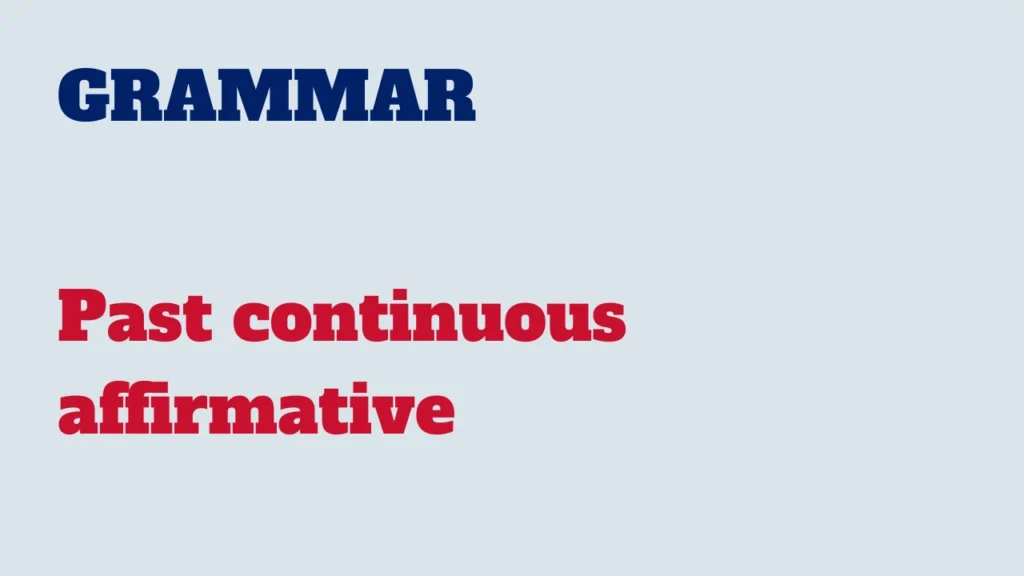The past continuous tense is used to describe ongoing actions or events that were happening at a specific point in the past.

Here’s how to form past continuous affirmative sentences:
Structure:
Subject + was/were (past forms of “to be“) + Present participle (Base form + –ing) of the Main verb + Complements or additional information
Examples:
I was studying when the phone rang.
She was cooking dinner.
We were playing soccer in the park.
They were watching a movie when I suddenly came back.
It was raining heavily.
Table: Past continuous – affirmative
| Subject | Past continuous affirmative | Examples |
|---|---|---|
| I | I was + present participle | I was studying when the phone rang. |
| You | You were + present participle | You were playing soccer in the park. |
| He/She/It | He/She/It was + present participle | She was cooking dinner at 7 PM. |
| We | We were + present participle | We were watching a movie when it started raining. |
| You (plural) | You were + present participle | You were working on the project together. |
| They | They were + present participle | They were talking about their vacation plans. |
Usage of past continuous – affirmative:
Describing ongoing actions:
Used to describe actions that were happening at a specific time in the past.
Example:
I was reading a book at 9 PM yesterday.
Setting the scene in narration:
Often used in storytelling to set the scene or describe background actions.
Example:
The sun was setting, and birds were chirping.
Expressing simultaneous actions:
Used to indicate two or more actions happening simultaneously in the past.
Example:
While she was studying, her brother was playing video games.
Providing context in past narration:
Used to provide context or background information in past narratives.
Example:
I was having lunch when the doorbell rang.
Common mistakes to avoid:
Incorrect: She was read a book when I called.
Correct: She was reading a book when I called. (Use the present participle form of the verb “read.”)
Incorrect: I were watching TV last night.
Correct: I was watching TV last night. (Use “was” for the first person singular.)
Understanding how to form and use past continuous affirmative sentences allows you to describe ongoing actions or events that occurred at a specific time in the past. Practice constructing sentences in the past continuous tense to enhance your language skills. Happy learning!



